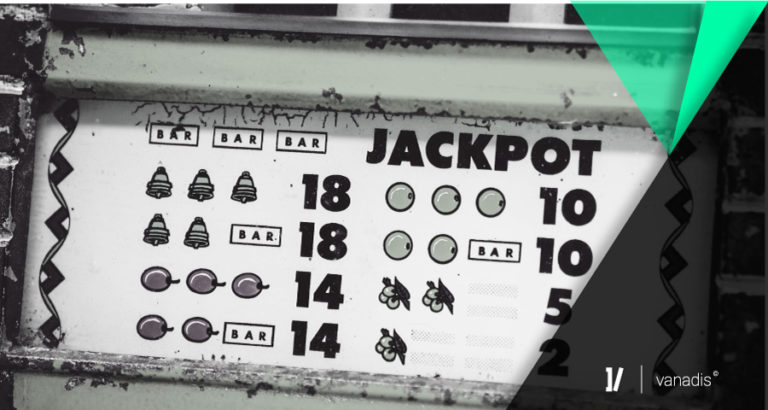Sistemas de reputación

Hoy veremos la mecánica de la reputación. Un ejemplo de esto llevado al extremo nos lo encontramos en el primer capítulo de la tercera temporada de Black Mirror (Caída en picado), serie de Netflix que nos habla de los peligros y riesgos de la llegada de las nuevas tecnologías. En ese capítulo nos muestran una sociedad donde la reputación condiciona la vida de las personas, pero esto no es algo que parezca quedar muy lejano y ya tenemos algún ejemplo como el sistema que se pretende generar en China con su planteamiento de crédito social para 2020.
 Escena del capítulo de Black Mirror donde se puede ver la puntuación del personaje.
Escena del capítulo de Black Mirror donde se puede ver la puntuación del personaje.
No se sabe mucho de la iniciativa en sí, pero parece claro que funcionará en parte como una moneda ya que se podrá acceder a ciertos contenidos exclusivos si se tiene cierta reputación y seguirá un sistema de refuerzos y castigos.
Esto ya lo habían intentado en 2010 al parecer implantando un sistema de puntos que premiaba la adhesión a la normativa y valores del estado. Si el ciudadano por ejemplo publicaba cosas favorables sobre el estado, lograba él y sus contactos incrementos en la reputación e igualmente se castigaba con la pérdida de puntos del ciudadano y de sus contactos, aquellas conductas, comentarios y acciones que iban en contra de lo que el estado Chino considera “una cultura de sinceridad y una sociedad socialista armoniosa”. La tenencia de esos puntos te daba ciertas ventajas para lograr crédito, acceso a visados para viajar y otros beneficios.
Tengo entendido que en su momento no les dió muy buenos resultados, ya veremos como les funciona en el futuro.
Entremos un poco en la mecánica de la reputación, los likes, los puntos por comentarios y ese largo etcétera que nos podemos encontrar ahora mismo en muchas aplicaciones. Los sistema de reputación sirven para lograr un reconocimiento dentro de un grupo, normalmente de intereses afines, y sirven como acicate para lograr mayores intervenciones en la línea deseada por la comunidad, empresa, etc. También permiten ver las dinámicas que siguen las conductas e intereses de los usuarios en el caso que sean ellos los que puntúan las acciones de sus iguales. Tiene un valor sociológico y psicológico valorar qué es lo que quieren o esperan los usuarios de ese sistema de reputación.
Los sistemas de reputación funcionan y bastante bien la verdad, son una forma de reforzar la conducta de manera contingente (que el refuerzo sea contingente a la conducta que queremos quede afianzada es algo importante). Dan un refuerzo sobre motivadores de reconocimiento y logro, fomentan la adhesión a un grupo y definen qué tipos de conductas son las deseadas y esperadas por parte de los usuarios.
Así que viendo lo funcional de los sistemas de reputación, es normal que los estados y empresas quieran incorporar estos sistemas a sus estructuras y quieran lograr ese control adicional sobre los usuarios.
Para los sistemas de reputación al igual que cualquier gamificación hay que planificar bien cómo se implantará, no se puede gamificar a lo loco, hay que valorar de qué forma se llega al usuario para que no le resulte invasivo, qué es lo que gana el usuario y los efectos colaterales que pueden surgir. Solo haciendo un buen análisis y valorando la viabilidad de la acción nos encontraremos con una mecánica que nos será muy funcional dentro de nuestra gamificación.
Tenemos que estar especialmente atentos a los efectos negativos que pueden derivarse de los sistemas de reputación, pueden resultar motivadores para muchos usuarios, pero puede generar el riesgo de exclusión social a aquellos que no logran alcanzar esos mínimos que se les está pidiendo, esto bien llevado nos ayuda a distinguir a los usuarios “problemáticos” e intentar acciones con los mismos para que entren en la dinámica que buscamos, pero habrá seguro personas que rebotarán ante estas acciones.
Para evitar esos rebotes habrá que tener pensada la forma de detección de problemas en los usuarios que no encajen en el sistema de reputación y posibles salidas o soluciones a los mismos. Habrá que valorar el efecto que se está logrando con el sistema de reputación y si de verdad se puntúa lo que se pretende, esto es un problema que ocurre especialmente cuando la puntuación viene de los iguales donde se pueden generar grupos donde se valoren otras cosas como la amistad o filiación, donde se pueden formar grupos con intereses diferentes, llegar a encontrar gente que da reputación a compañeros por realizar exactamente lo contrario que se está buscando.
Por eso hay que estar tan atento al utilizar esta herramienta que puede ser muy útil pero que requiere un nivel de control importante para lograr los objetivos que perseguimos.
—————
Reputation systems.
Today we will talk about the game mechanics of reputation. You can find and extreme example of this in the third Season first Episode of Black Mirror (Nosedive), a serie from Netflix that tell us about the dangers and risks associated with the arrival of the new technologies. In that chapter they show us a society where reputation conditions the people’s life, but this is not something that seems to be very far away, now we have some examples like the reputation system that China is intended to create with their approach to a social credit system for 2020.
 Black Mirror chapter scene where you can see the character’s score.
Black Mirror chapter scene where you can see the character’s score.
Not much is known about the initiative itself but it seems clear that it will work as kind of currency because it will be able to access to certain exclusive contents if you have some level of reputation and it will follow a system of reinforcements and punishments.
This had been already tried in 2010, apparently implementing a system of points that rewarded the adherence to the rules and values of the state. If the citizen, for example, published favorable things about the state, he and his contacts increased their reputation and, all the way around, you could be punished if you did comments and actions that went against what the Chinese state considers «a culture of sincerity and a harmonious socialist society». Holding these points gave you certain advantages like obtain credit in a bank, access to travel visas and other benefits.
It is said that at that time it did not give very good results and we will see how it works in the future.
Let’s get into the game mechanic of reputation, likes, points for comments and that long etcetera that we can find right now in many Apps and webs. Reputation system help to achieve recognition within a group with related interests, and works as a spur to increase interventions in the desired line by the community, company, etc. They also allow us to see the dynamics that are associated to the behaviors and interests of the users, especially when they are the ones who rate the actions of their peers. This has a sociological and psychological value to asses what this reputation system users want or expect.
The reputation systems work and quite well indeed. They are a way to reinforce behaviors in a contingent way (the contingency of the reinforcements on the behaviors that we want to elicitate is very important). They reinforce recognition and achievement motivators, encourage group adherence and define what kind of behaviors are desired and expected by users.
Seeing the functionality of reputation systems, it is normal that states and companies want to incorporate these systems into their structures and that they pursue that additional control over users.
For reputational systems, just like any gamification, it is necessary to plan how it will be implemented. You shouldn’t do a Wild gamification, , you have to evaluate how it will reach the users trying not to be so invasive. Trying to find what the user gain with it and the collateral effects that may arise. Only doing a good analysis and valuing the viability of the action, we will find mechanics that will be very functional within our gamification.
We have to be especially aware about the negative effects that can came from reputation systems, this systems can be very motivating for many users, but can generate the risk of social exclusion to those ones that fail to reach those minimums marks that are being asked. If you control the action you can define the «problematic» users and try solutions with them to make them enter the dynamic, but there will be people that will quit this actions due their reject to the system.
In order to avoid such a thing, it will be necessary to have a plan to detect the problems that the users than not fit into the system could have and apply possible solutions to them. It will be necessary too to evaluate the effect that we are achieving with the reputation system and see if it is really promoting what was intended. This can be a big problem especially when the reputation punctuation cames from the equals where groups can be generated according to different points as friendship or filiation. Them you can find people who gives reputation to friends by performing exactly the opposite actions that are being sought.
That is why you have to be so aware to see that the use of this tool can be very useful but it requires an important level of control to achieve the objectives we pursue.



